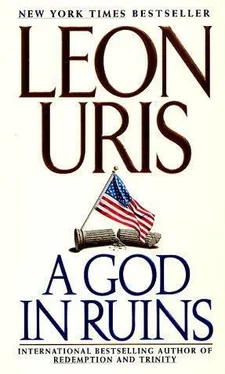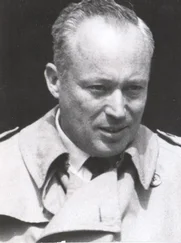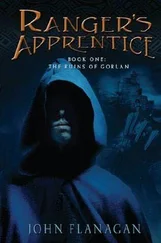The master bedroom at Nanatuck faced the sea, complete with a hot tub and a play area. Thornton slept in the dark-dark because too much light hurt his eyes.
About five in the morning, most mornings, Pucky was awakened by the sound of Thornton in his bathroom, urinating and brushing his teeth.
She quickly went to her own bathroom, and he knew exactly how long it took her to prepare and get back under the covers.
A very low-key ritual dance began with a peck of a kiss followed by certain wigglings and allah-kazam, they were in the missionary posture. Give or take, the entire drill lasted around fifteen minutes. It was impossible for Pucky to confront him with his sexual inadequacy. He simply didn’t get it, require it, or see that there should be more to it.
The woman kept it to herself, had herself tied off after the daughter was born, and lived with a low tide of sadness always near.
Darnell always had business in New York and Washington, where T3 maintained offices. It was a wild time of happenings from the Challenger explosion to the Chernobyl disaster to the fall of the Berlin Wall. He and his present wife often accompanied Pucky to Broadway theater, Lincoln Center, or the wild bright spots in the Village.
At the end of the night she often did not go back to the T3 apartment on Park Avenue but drifted down to the Village alone to her sister Penny’s loft. Darnell did not know that anything was amiss but suspected it.
He did not want such a tight relationship with Thornton’s wife. It put him on the middle of a fault.
A time back, Darnell had convinced Thornton that he should establish a charitable foundation. The monster bill was tens of millions; its guiding philosophy was a support system for engineering, medical, and scientific research.
“Over my dead body,” warned Thornton when Darnell proposed a five-million-dollar research grant for AIDS. T3 was alive and well when the gift was made. It grabbed national attention, and suddenly over a hundred gay employees of T3 Industries came out of the closet.
Darnell worked the boss like he was playing a fine violin, so Thornton got credit for putting Pucky on the foundation board. It was a brilliant move, one that put a light into her eyes again.
Dr. Hans Neucamp, president of the Tomtree Foundation, was tired and sported squinting red eyes. “Grant number one hundred twenty-two,” he said, “thirty thousand dollars to Utah State for finishing ponds for the rest of the freshwater fish experiments.”
No objections.
“And one more. The Peterson brothers in Toledo. Their battery will drive a Jeep three hundred miles without a charge. They’re onto the right system for a breakthrough,” Dr. Neucamp said.
Thornton nodded his head.
“Well, that’s it,” Neucamp said.
“If I hear no objections, I propose we vote to pass the grants unanimously.”
“I object,” Pucky said. Emerge from your long darkness now, Darnell had pleaded with her. She caught a glimpse of Darnell on the right side of T3.
Come on, baby, Darnell thought, kick ass.
“Mrs. Tomtree?” Dr. Neucamp asked with a crooked smile and a voice that leapt just a few notes higher.
“What the hell is this all about?” Thornton snapped, looking at his watch. He leaned closer to Darnell, and Darnell nodded. “This being the case, we’ve had a very long day. Why don’t we adjourn till tomorrow? I’ll see what’s on Mrs. T’s mind, and it will only take a few minutes to wrap it up. See you here at ten.”
Dr. Neucamp wanted to hear what transpired, badly, but Darnell took his elbow and guided him through the leather door. The other board members, a cross section of intimidated silence, slunk out.
Darnell phoned the press office and told them to hold up the fund announcements.
“My goodness,” Pucky said, ‘”I object’ were the first two words I’ve spoken in ten board meetings. I object, I object, I object.”
Darnell started to leave.
“Come back here. You’re not leaving me alone with this crazy woman.”
“MIT, Cal Tech, Carnegie-Mellon, are going to be drenched in joy tomorrow,” she said.
“I know what my bride is up to,” Thornton said.
“When I came on the board, you agreed that a portion, not specified, would go to the arts. A portion of zero is zero.”
“Correct! Nothing of nothing is nothing. And nothing is where the arts are going in the next century. Playwrights have abandoned the stage, and novels will become relics. They prefer to spread crap thinner and thinner on a hundred and fifty TV channels.”
“Hold on, Thornton,” Pucky commanded. “We woke up from a war singing, “Oh, What a Beautiful Morning.” It was the nation’s song of hope. Brilliant and talented people carried this through the middle of the century with golden plays, golden novels, and golden theater. They were as good as any in American history. Richard Rogers, Tennessee Williams, John Steinbeck .. . Lord!”
“The people have made their choice, Pucky. I’m only following their orders,” Thornton answered.
“Their orders! To conceal corporate greed?”
“Oh, Jesus, Pucky. People have gladly traded their freedom for a web site. Everything, everything is going to be packaged and merchandized so they won’t ever have to get up off the couch again. You’ve heard the rappers .. .
“Oh, woe is me, Cop on the beat, mean mother, I’m in pain without gain,
So, listen up, brother, And listen up, dykes I’ll slash you for yo Hikes!
“You want me to support this noise?” he continued. “You want me to support so-called artists floating livers in bottles of urine and calling it art? Where are the men and women who write for the stage? A single American play a year might get through to Broadway. Not a single goddamned play in twenty five years. Jesus Christ, Superstar .. . that’s a musical?
“Listen up, Pucky, they are going to do up Broadway soon. Down with the hookers! Down with the pimps! Down with dealers! Down with the storefronts going out of business every week! Down with all the freaks! We are going to have us a sanitized, packaged, merchandized Broadway. When they run the faggots out of Forty-Second Street, we’re gonna have Walt Disney’s itchy-clean Broadway ... a place where a man can take his wife and kids into itchy-clean T-shirt shops.”
For the first time Darnell had heard his boss passionate about something other than his computers. Thornton knew he was on the leading edge of a revolution for the minds of the people, one where instant gratification and not knowledge dug from deep places was going to be the rule. Thornton was dedicated to some kind of sterilization of society.
“I heard a golden-voiced man sing at Juilliard last night,” Pucky said as if in a trance. “He’s no chance without a scholarship because the tuition doesn’t cover a crippled wife and two children, and unless we provide it, we may have lost a new Pavarotti.”
“We’ve already got one. Who needs another one?”
“Thornton. Musicians and writers and most artists are the least greedy people in the world. Because they cannot function without support, what do we do? Every culture since man began has supported its creative heritage.”
“Can’t you see, woman, we’ve been shedding this past year by year. It’s
a new scheme of things. So what is it, Pucky? Have we abandoned the writers or have the writers abandoned us? Revivals are going clear back to the Student Prince—a la mode. Or would you prefer a British tete-a-tete? The writers are all making more money filling up time desperately on a hundred and fifty channels. Money is good! Writers never had money. So, my dear, give unto Disney what is Disney’s and sweep Times Square clean and have little fairy princesses passing out gumdrops on Forty-Second Street.”
Читать дальше












